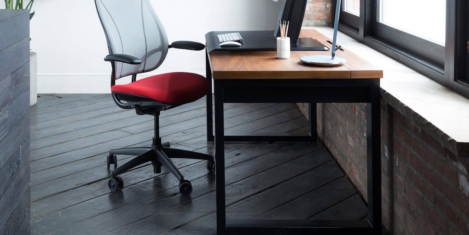January 24, 2018
Business in the community aims to improve the quality of work for lowest-paid staff

Financial concerns are increasingly affecting the performance of workers across the UK, with one in eight UK workers (3.7 million) now living in poverty. According to the Money and Mental Health Policy Institute, a quarter of the UK workforce are, to some extent, experiencing financial insecurity. One in five employees (21 percent) report that they are just about managing financially, while a further 5 percent say they are finding things difficult. Aside from the undue stress this causes families, this can also have significant repercussions for employers, in terms of recruitment, retention and productivity. This has prompted Business in the Community, (BITC) with support from the Joseph Rowntree Foundation, to make the case for all employers to improve the quality of work for their lowest-paid staff. Its new campaign, Good Work for All draws on best practice from forward-thinking organisations including Starbucks, Royal Mail and Sodexo, and over a third of BITC members have reported taking company-wide action on low-paid work with successful outcomes.
















 Two-thirds (64 percent) of employees have gone to work despite being unwell over the last 12 months, claims a new survey which found that a quarter (26 percent) of people worried that their absence will be a burden on their team. The research by Bupa shows that more than one in four (27 percent) employees ignore their doctor’s orders to stay at home and ‘soldier on’. A third of employees would go to work despite back pain or issues related to their joints and, disturbingly, a similar number (29 percent) head to work when suffering from mental health issues such as depression. As two of the most common reasons to be signed off work, Bupa’s experts fear these employees risk worsening their health, increasing the likelihood that they’ll need a prolonged period of time off work further down the line. The findings come at a time when increasing productivity is a strategic goal for most business leaders in 2018. But high levels of ‘presenteeism’ are in fact associated with loss of productivity and reduced performance – as employees who push themselves into work when unwell, risk delaying their own recovery
Two-thirds (64 percent) of employees have gone to work despite being unwell over the last 12 months, claims a new survey which found that a quarter (26 percent) of people worried that their absence will be a burden on their team. The research by Bupa shows that more than one in four (27 percent) employees ignore their doctor’s orders to stay at home and ‘soldier on’. A third of employees would go to work despite back pain or issues related to their joints and, disturbingly, a similar number (29 percent) head to work when suffering from mental health issues such as depression. As two of the most common reasons to be signed off work, Bupa’s experts fear these employees risk worsening their health, increasing the likelihood that they’ll need a prolonged period of time off work further down the line. The findings come at a time when increasing productivity is a strategic goal for most business leaders in 2018. But high levels of ‘presenteeism’ are in fact associated with loss of productivity and reduced performance – as employees who push themselves into work when unwell, risk delaying their own recovery

















December 22, 2017
Five employment law milestones from the past year we need to remember in 2018
by Lucy Gordon • Comment, Workplace